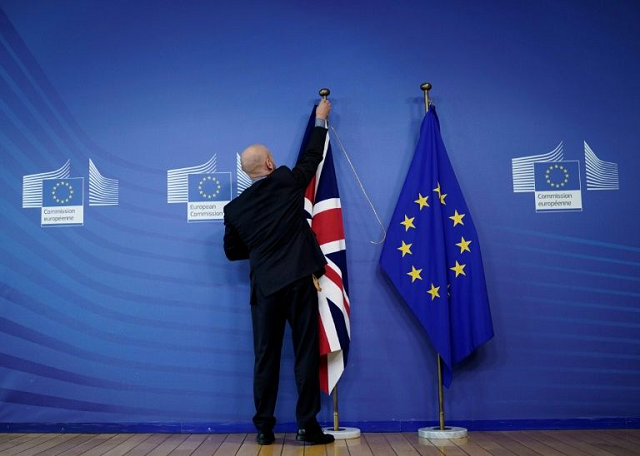Post-Brexit: UK to prepare its own GSP scheme for Pakistan
Aims to maintain current level of merchandise trade between two countries

PHOTO: AFP
Speaking at the Pakistan Textile Exporters Association (PTEA), she said an increase in bilateral trade was of vital interest for the governments of both the countries.
“By taking advantage of the forthcoming Brexit, economic ties between Pakistan and the UK can be taken to the next level,” she said. “Pakistan is an emerging frontier market that deserves greater attention, hence, the Department for International Trade (DIT) is enhancing its resources for Pakistan.”
As a major trade partner of Pakistan, the UK would continue to extend its diplomatic and political support to help explore more avenues of bilateral business, she stressed. She pointed out that the UK was currently focusing on green energy and energy efficiency in Pakistan including consultancy for individual enterprises on energy conservation in their production processes.
In Pakistan, businessmen see Brexit as opportunity for trade boost
“We are working in different sectors of the economy to enhance productivity and working conditions to further improve the quality and quantity of exportable surplus from Pakistan,” she added.
Welcoming the envoy, PTEA Vice-Chairman Haris Yousaf said that the UK was without a doubt one of the most vocal and reliable supporters of Pakistan.
He added that the European nation had taken many extreme measures to support Pakistan’s economy.
Pakistan has the largest textile manufacturing industry and the country is the eighth largest exporter of textile products in Asia.
Stating figures, he said the textile sector contributed 8.5% to the country’s gross domestic product (GDP) and provided employment to about 15 million people or roughly 38% of the country’s workforce.
“Pakistan is also the fourth largest producer of cotton having the third largest spinning capacity in Asia after China and India,” he said. “We contribute 5% to the global spinning capacity.”
Highlighting the post-Brexit effect on Pakistan-UK textile trade, he said that it could potentially have a major negative impact on Pakistan’s exports to the UK as they were currently governed by the EU’s GSP Plus scheme.
Published in The Express Tribune, February 21st, 2020.
Like Business on Facebook, follow @TribuneBiz on Twitter to stay informed and join in the conversation.


1733130350-0/Untitled-design-(76)1733130350-0-208x130.webp)
















COMMENTS
Comments are moderated and generally will be posted if they are on-topic and not abusive.
For more information, please see our Comments FAQ